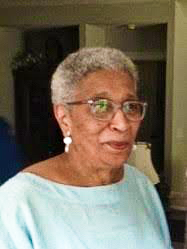Note: The author is co-chair of Savannah Island Democrats

Gwen Jordan
So far, on this idyllic island, we are very fortunate that our pandemic experience is more of an inconvenience than a health crisis.However, as we know, in other communities around the country COVID-19 continues to have a devastating impact. Black and brown citizens (regardless of age, health and economic status) are – by overwhelmingly numbers – the victims of this virus. The Corona Virus lays bare inequities as found at the intersections of racial inequality and economic disparities. Limited access to quality medical care, unsafe working conditions and overcrowded housing conditions – these factors and more, all contribute to the reasons why many citizens are peculiarly susceptible to the ravages of COVID-19.
In the mist of this health crisis the country was forced – in real-time – to witness the public lynching of a black man. Black citizens are continually impacted by racial inequality, currently traumatized by disproportionate effects of Coronavirus, and now brutalized by horrific images of state-sponsored murders of black men and women. This past week, black people experienced a crisis, within a crisis, within a crisis. As a black woman, finding words to adequately describe this experience is impossible, and the pain can only be expressed in a primal scream firmly rooted in 400 years of brutal oppression.
These are not partisan issues – the issues of racism and injustice are complicated and complex national, albeit, international issues. Woven into the fabric of this country, racism has shaped economic, political, and social life for the past 400 years. Racism is all-encompassing – as all-encompassing as the air we breathe. In the US no one escapes the ravages of racism. Experienced differently depending on whether the color of your skin identifies you as a target or a beneficiary of racists practices, racism not only oppresses those of color, but it exploits white fears to the extent that people are driven to act against their own self-interest. This phenomenon is evidenced by people who are willing to support a President who believes that sacrificing democratic principles is a legitimate tradeoff for racial superiority.
However, there is hope in what we have seen on the streets this week. Hope that is vested in the multi-racial, multi-generational, economically diverse protestors who are demanding change. Protestors who understand – as those who marched with Martin Luther King understood – that this country is constantly challenged by its own aspirations. Aspirations as expressed in the lofty words: “All men are created equal….” It is this standard that gives rise to the protestors question: Will we hold ourselves – our country – accountable for the standards we profess, or will we continue to live out a hypocrisy? At this tipping point in our country, we owe it to ourselves, our children, and our country to come together in humility. Knowing that we do not have the answers and also knowing that in seeking answers we must begin to face hard truths.
This November election represents a crucial step in the process of turning aspirations into positive political actions. This election is the most important election we will face in our lifetimes. It is about something so much bigger than winning or losing a partisan political election. It is about the future of democracy, it is about living up to our aspirations, it is about seeking social and economic equity and its about the continuous pursuit of equal justice for all.
So, fellow Democrats, how – even in the context of COVID-19 – do we become active participants in bringing about desperately needed change in our local and national political leadership? The following are just a few suggestions – I’m sure you have many more.
- Conversations with Neighbors. This is an important time to have a conversation with your neighbors. Some, not all, may be looking for a way to correct the mistake they made in the 2016 election. The conversation does not have to focus on partisan politics but rather one that raises principles of democracy. Together we can develop conversation cues to frame persuasive discussions. One-on-one discussions should, over time, expand into larger virtual Zoom discussions that can be focused around newspaper/magazine articles, TV shows, books, etc.
- Meet and Support Candidates. Following the June 9th Primary, within the context of social distancing, develop innovative strategies to virtually engage and support candidates for November elections.
- Develop a SID Policy Agenda. Working with local organizations, create a SID policy agenda that frames and drives political action. For example, a well-structured policy position regarding Medicaid expansion should guide our efforts to either support or hold accountable candidates running for, or serving in, state legislature.
- Fight for Fair Elections. Make sure that mail-in ballots are secured in sealed envelopes as required by the US State Department, US Military, and all states that conduct mail-in elections. We can join with League of Women Voters and others to participate in strategies that address our ballot security concerns to local Board of Elections and the Secretary of State.
- Support Get Out Vote Efforts Work with local nonprofits to raise money and distribute postage stamps to reduce the burden of the state imposed “poll tax” and ensure that all residents have necessary resources to vote by mail-in ballot.
Please take care and be safe.
